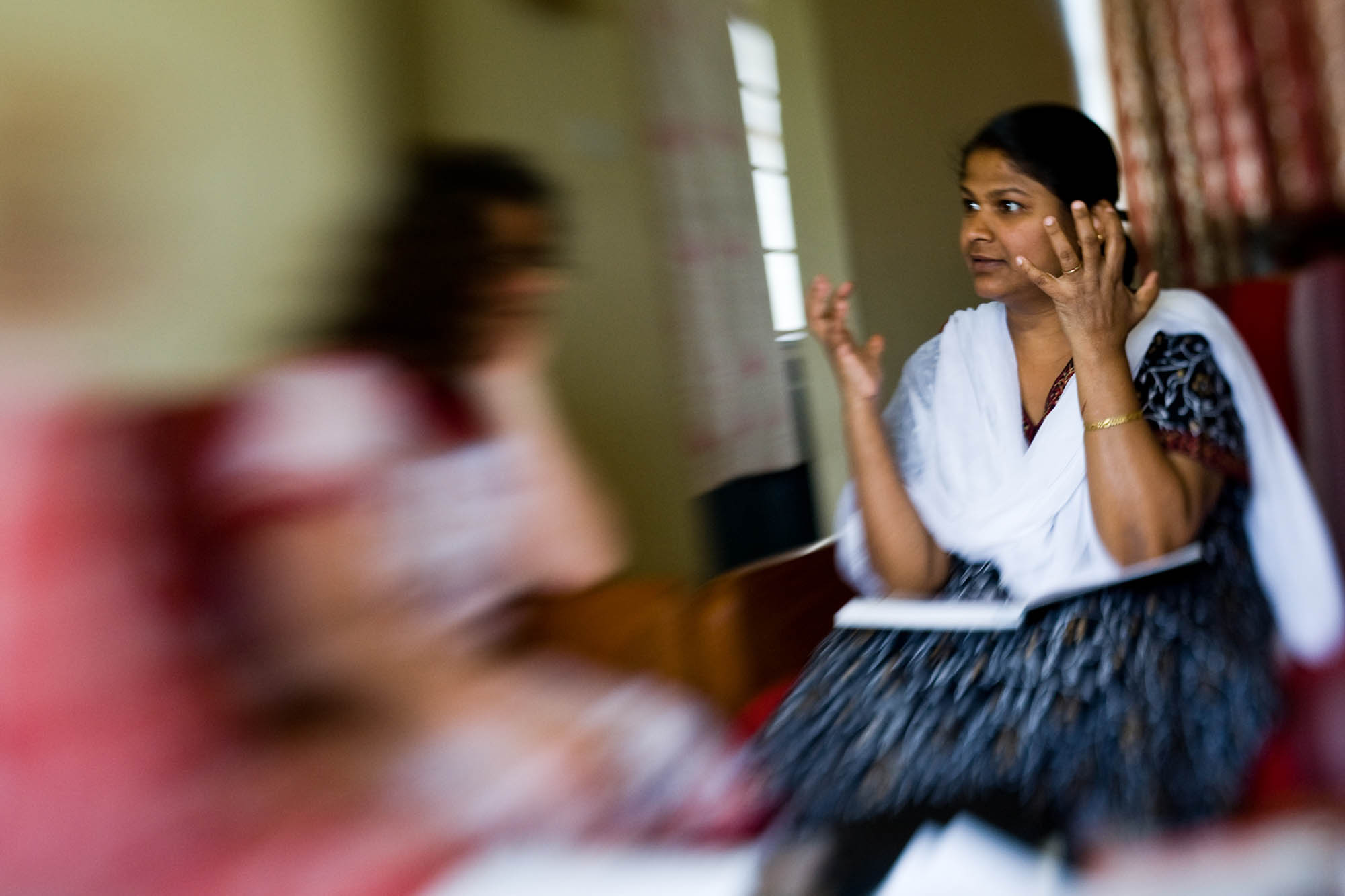
NAIROBI, Kenya (BP)–Dr. Ramesh* was miserable.
First he had steeped himself in his father’s fervent Hinduism to the point of obsession. Then he went to the opposite extreme, rejecting religion.
Studying science in preparation to be a physician “played a major part in making me not only a non-Hindu but a nonbeliever,” the Indian doctor recalls, sitting behind a desk in his Nairobi medical office.
“But I had no happiness or peace.”
Ramesh was befriended by a Southern Baptist doctor in Nairobi who discussed the Bible’s message with him. He also met Phillip Penn*, another Southern Baptist worker who told him about God’s love. But he brushed aside the claims of Christ — for a time.
“One fine day I took out a book from my drawer without knowing what it was about,” Ramesh says. It was a Bible. God’s voice spoke to him powerfully. He feared his family’s reaction — especially his father’s anger — if they discovered he was studying the Bible, so he read it secretly in his office.
“I thought I was the only one,” he says.
As his friendship with Phillip deepened, however, he met other ethnic south Asians who had decided to follow Christ. Now he is one of them.
It hasn’t been easy. You pay a price in Nairobi’s Hindu community for becoming a Christian. His father was outraged. He lost Hindu patients. It took him two years to find a new office after losing his old one. But he regards his new place as “an answered prayer, a miracle.”
He openly shares the Gospel with his black Kenyan patients — and looks for opportune moments to speak truth to Hindu and Muslim south Asians who come to him. And he prays for the day his father, elderly and ailing, will meet Christ personally.
DOOR-OPENERS
Ramesh is the kind of seeker Phillip and his wife Sarah* are called to reach. Veteran Southern Baptist workers, they’ve started many churches among indigenous people in East Africa. In each place, however, they’ve met spiritually hungry south Asians who own many businesses in the region. Now they focus on south Asians exclusively.
“We enjoyed our work with [black] Africans, and we’ve had a lot of response, but our heart just went out to the south Asians because they were lost,” Phillip explains. “I said to our African brothers, ‘I love you. You’ve had the opportunity to hear the Gospel for 40 years. I’m compelled to go to people who have not had the opportunity. Pray for us.'”
Some 200,000 south Asians from more than 40 distinct people groups live in Nairobi. About 80 percent are Hindus with roots in India’s Gujarat state, Phillip estimates. The groups also include Muslims, Sikhs and Jains from India, Pakistan, Sri Lanka and elsewhere. Some are relatively new arrivals to Kenya. Others have roots going back generations to the birth of Nairobi during the construction of the Mombasa-Uganda railway a century ago.
South Asians wield major economic power in Kenya. Many live in the city’s affluent neighborhoods and gated communities. You’ll find them in businesses and restaurants at upscale shopping centers such as Diamond Plaza, known as “Little India.”
They’re close-knit, hardworking, family oriented and self-sufficient, with their own temples, mosques, schools, health facilities, clubs and temples.
So making friends — even gaining access — takes some doing. But there are points of entry for the Penns and their co-workers: Some are as simple as spending time and striking up conversations at places Asians frequent.
“If you get to know them a little bit, the first thing they want you to do is come to their house and eat,” a team member says.
The most powerful door-opener: prayer.
“The biggest opportunities we’ve found as we sit down with Hindus and Muslims is to ask, ‘Can we pray for you?'” Phillip says. “And they just open their hearts to us. They let us pray for them in the name of Jesus.”
When such a prayer is answered, their new friends come and tell the Penns: “Your God is powerful!”
The Penns also coordinate English-teaching programs, teach and do family counseling. Many Asian marriages are arranged; couples struggle to communicate with each other. Many Asian women are lonely. Some are abused, such as Fatima*, who lived with the Penns for a time. The young Muslim woman was beaten by her first husband, then married an older man. When he died, the family threw her out of the house. She was working at Diamond Plaza when Sarah met her and offered to teach her English. They became close friends.
One day Fatima asked Sarah, “Can I ask Jesus to come into my heart?”
Several Bible studies for Asians are meeting regularly. The Penns pray that 20 percent of the Asian homes in Nairobi will become hosts for Bible groups that develop into churches. They’ve also written a series of 52 Bible stories designed specifically for Gujaratis, who love stories.
“We look at it as a process,” Phillip says. “A lot of Hindus say, ‘Do I want to give up all my friends [for Christ]?’ One day they have to decide. And when a Hindu gets saved, they really get saved. Those are the most exciting days for us, when it hits them that this is truth, that Jesus is Lord.
“It’s our dream to introduce them to the Lord and let them be evangelists to their own people. It’s slow, but God is working.”
–30–
*Names changed. Erich Bridges is a global correspondent with the International Mission Board.

















